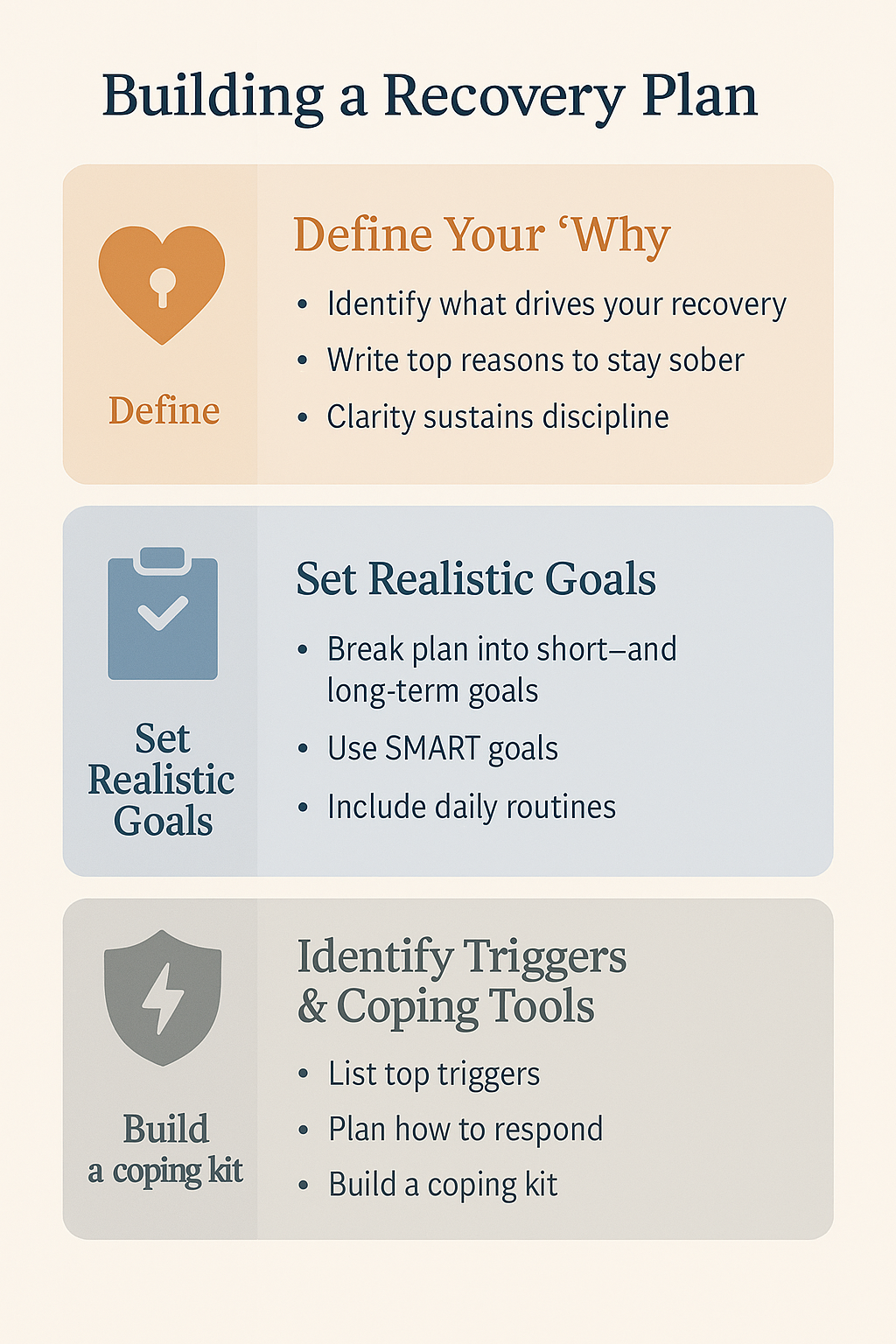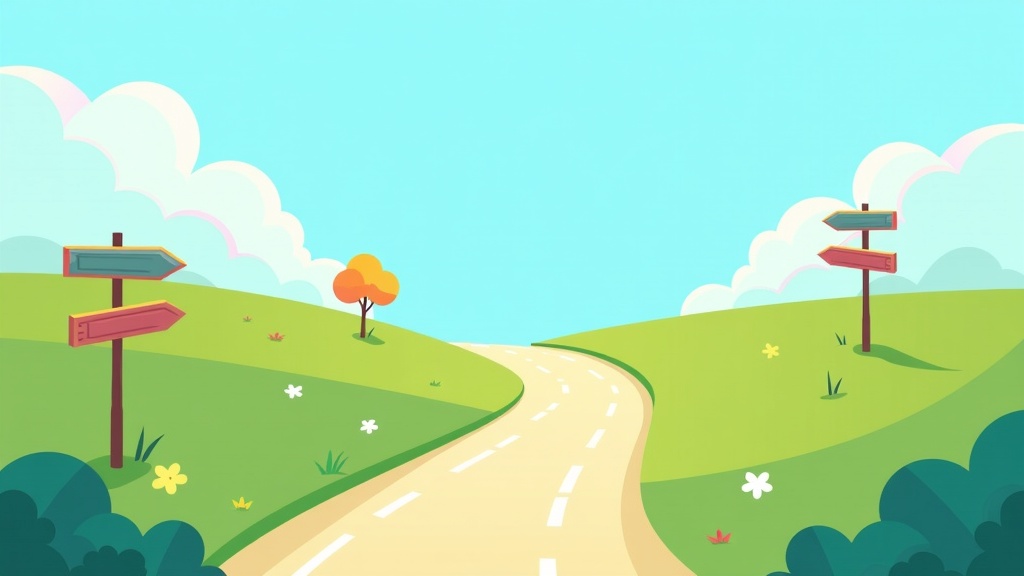Building an addiction recovery plan might sound big, but it really comes down to getting organized and making things smoother for yourself. Piecing together a thoughtful, step-by-step roadmap can make each phase less overwhelming and more manageable. I want to share what I’ve learned about recovery planning, so you have practical tips and new ideas at every step.
The Basics: Why a Recovery Plan Actually Helps
Treating addiction is a ride that’s full of ups and downs. Having a recovery plan is like setting your GPS to the healthiest version of your life, so you’re not winging it every day. A plan clears up what’s next and helps you build in important reminders about support, coping tools, and personal goals. It can really make a difference when temptation, cravings, or tough feelings hit.
This sort of planning isn’t only for people leaving rehab. Anyone wanting to change a habit or stay clean finds it helpful. Think of the plan as more than a set of rules. It’s there to help you celebrate progress, spot setbacks early, and lean on your strengths as you go.
Addiction recovery plans are becoming more common, especially with so many people tapping into online and community resources these days. Research shows that sticking to a plan boosts long-term success, especially for those who use additional support systems such as friends, groups, or counselors. (Check out info from SAMHSA for more on recovery approaches.)
Step-by-Step: Building Your Personalized Recovery Plan
If you’re not sure where to start, here’s what I focus on when working out a recovery plan:
- Set Clear, Specific Goals: Try things like, “I won’t use [substance] today,” or “I’ll call my sponsor when I’m stressed.” Write them down. Short-term goals (like one day at a time) sit alongside bigger ones (like three months clean).
- List Triggers and Risky Situations: Jot down people, places, and things that tend to trip you up. This helps you avoid or prepare for them. If boredom or late nights make things worse, your plan will have your back with better options.
- Pick Your Coping Strategies: Make a menu of things that help you push through cravings or rough days—breathing exercises, walking, calling a friend, or jumping into a hobby are all options.
- Set Up Your Support Network: Make a contact list for the people, groups, or professionals you turn to. Add phone numbers and your preferred way to reach them so you’re not scrambling in a tough moment.
- Map Out Relapse Action Steps: Sometimes things slip. A good plan covers what to do if you use it again. Decide ahead of time who you’ll call, how you’ll get back on track, and some words of encouragement for yourself.
Practical Tips for Rolling Out Your Plan
Plans work best when they’re set up for real life. Here are a few tweaks I always suggest making recovery more doable and real:
- Start Small: Too many changes at once can stress you out. Shift one habit at a time—it feels manageable and keeps you on your toes.
- Check in with Yourself Regularly: Set aside a few minutes each week to assess what’s going well and what’s tough, and adjust your plan when necessary.
- Make Things Visual: Post your goals where you’ll see them, like sticky notes, phone reminders, or a habit tracker. It keeps the plan front and center.
No need to worry if you keep tweaking the plan. It should shift as you grow, not the other way around. Tweaking means you’re learning—not failing!
Things to Watch Out for When Starting Recovery Planning
The idea of planning out your recovery is positive, but everyday life likes to throw curveballs. Here are some challenges I’ve bumped into, and tips that might help:
- Feeling Overwhelmed with Details: Keeping it simple is a must. If the plan feels like too much, it probably won’t stick. Only include the stuff that really helps.
- Getting Discouraged by Setbacks: There will be rough days—know that’s normal. Having kind words for yourself and a go-to action (like calling someone or practicing a coping skill) can make all the difference, rather than sitting in guilt.
- Isolation: A small support circle can lower your risk of relapse, even if you’re private. Messaging a friend or joining an online group is a solid starting point if face-to-face isn’t your thing.
- Rigidity: Life constantly changes; your plan needs wiggle room. Stay flexible and celebrate even the least progress.
Keeping Motivation Steady
Staying motivated in recovery is about remembering your ‘why.’ Write down real reasons you want to recover—maybe relationships, health, or future dreams. Glancing at these reminders when cravings hit can help you endure challenging moments. And don’t forget to treat yourself; a simple reward like your favorite snack or a call to a supportive person can reinforce your wins.
Managing Expectations from Others
Sometimes, family and friends expect faster progress than reality allows or don’t understand what recovery looks like. It helps to let them know what you’re focused on, and that relapses or slow growth can be part of the process. This keeps tension low and enables you to focus on your needs.
Ideas for Support and Connection
I’ve found that drawing on a mix of support really makes a difference. Here are some options worth checking out or stumbling upon as you go:
- 12-Step Groups: Meetings like Alcoholics Anonymous (AA) or Narcotics Anonymous (NA) help lots of people. They offer accountability and understanding, with options for in-person or online.
- SMART Recovery: This science-based community focuses on self-empowerment and real coping tools. If 12-step isn’t your thing, this could be more your speed.
- Peer Support Apps: Mobile apps and chat groups can connect you with people facing similar challenges day or night.
- Family Therapy or Counseling: Working with an addiction-trained counselor supports you and your relationships, building healthy habits for all.
For more resources on finding support, national helplines like the SAMHSA National Helpline are available 24/7, free, and confidential.
What to Include in Your Recovery Toolkit
Beyond the basics, I like to keep a recovery toolkit ready, both mentally and physically. Here are extra things I think everyone in recovery should have in reach:
- Notebook or Journal: These are perfect for jotting down thoughts, small wins, gratitude, and working through challenging moments on paper before they pile up in your head.
- Distraction Items: Fidget toys, stress balls, crossword books, or anything to keep your hands and mind busy during cravings.
- Positive Playlists or Podcasts: Music and real stories can give you hope or boost your mood on a low day.
- Emergency Plan Card: Keep a written plan in your wallet or on your phone—whom to call and what to do if you face a risky situation.
You might also want to add calming apps, snacks you love, or photos reminding you why you started this adventure.
Frequently Asked Questions
There are plenty of people who wonder about recovery plans. Here are some common questions and honest answers based on experience and what I’ve read:
Question: How detailed should a recovery plan be?
Answer: It needs just enough detail to be helpful—don’t overload it. Highlight your biggest triggers, main coping tools, and support network. Extra details can be bonus material if they help.
Question: What if my plan isn’t working?
Answer: Sometimes that happens, and editing or simplifying is fine. Talk with a counselor, sponsor, or someone you trust who’s been there. Build on what’s working, not just what you think should help.
Question: Can a recovery plan help prevent relapse?
Answer: It sure can. A plan encourages you to think ahead and decide how to respond in risky situations. It lets you reflect on progress when old routines come calling. While it’s not a guarantee, having tools ready gives you an edge if you falter.
Wrapping Up: Keeping Recovery Simple and Focused
Building a solid recovery plan helps make the road out of addiction less overwhelming. Setting clear goals, writing down triggers and actions, and creating a supportive network help you manage the process confidently. The key is progress, not perfection. Just showing up and tweaking your plan as you learn more about yourself matters a lot—it’s never wasted effort.
Be patient with yourself and never hesitate to reach out for support. Recovery planning is about finding what works for you, so keep exploring until you find the approach that best suits your needs. Every step forward counts!
Video: How to Make a Recovery Plan That Works

